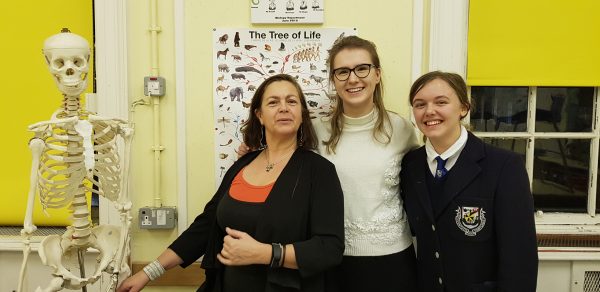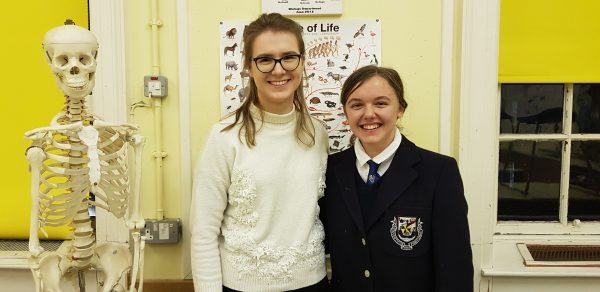I remember arriving in Dollar for the first time in August 2010, after being awarded a scholarship to become a boarder and attend the Academy. My first sight of the Ochil Hills and Castle Campbell has stayed with me ever since. Back then, I was very keen to get started with my Highers. It had been the opportunity to focus on the subjects which interested me the most (Biology and Chemistry) that had first attracted me to the school.
Studying fewer subjects left me with more time to pursue my academic interests, as well as becoming involved in a range of cocurricular activities. Through the guidance of Mrs. Macdonald, I discovered a selection of fascinating popular science works, including those written by Professors Bryan Sykes and Richard Dawkins. The Selfish Gene, authored by the latter, provided me with an introduction to the complicated world of evolutionary biology.

The annual Advanced Higher trip to Millport provided me with another important landmark in my progression as a researcher – my first research project! Instead of messing about on the seaside, I accepted one of the wet lab projects that Dr Payne had come up with. As a result, over the two days, I got to measure the efficiency of different enzymes in producing fruit-juice from pre-made puree.
Fast-forward to almost ten years later, I’ve just wrapped up my doctoral studies in Biochemistry at the University of Oxford, using the nematode Caenorhabditis elegans to study the evolutionary principles of resistance emergence. The completion of my Highers and Advanced Highers seems like a distant memory by now, but the encouragement and instruction that I received through this early stage of my studies provided me with the foundation to later pursue this advanced research degree.
My research as a member of Alison Woollard’s lab at the Department of Biochemistry has acquainted me well with the life and ways of the small nematode worms mentioned above. C. elegans is a commonly used model organism with characteristics that make it well-suited to, among all else, evolutionary studies. The suitability of the animals to investigate contribution of natural variation to rapidly emerging resistance, as well as perform evolution experiments and observe the spread of resistance in real time, has provided numerous insights to the factors that are important in mitigating resistance in agriculture.

Better understanding of the principles that guide evolution of resistance is also important in medically relevant settings where it has been observed to severely affect the efficacy of antimicrobial or antimalarial agents. Keeping in mind the demands of a growing global population, ensuring food security as well as continued effectiveness of existing medicines relies on scientifically proven resistance management methods. In this way, the small worm, which is essential in the study of developmental biology, neuroscience and even ageing, can also aid us in coming up with better strategies for the management of resistance.
With my thesis submitted and the defence passed, I am now looking forward to my next challenge. The PhD taught me how to approach complex societal and scientific problems in a structured and evidence-driven way, and I am looking forward to utilising these skills in a non-research role as a strategy consultant. My hope is that this background will be beneficial and aid in the creating and implementation of solutions to existing problems in healthcare, security and more.
If you are an FP would like to share your own career story, we’d love to hear from you. Please get in touch at news@dollar.multiapps.net.
